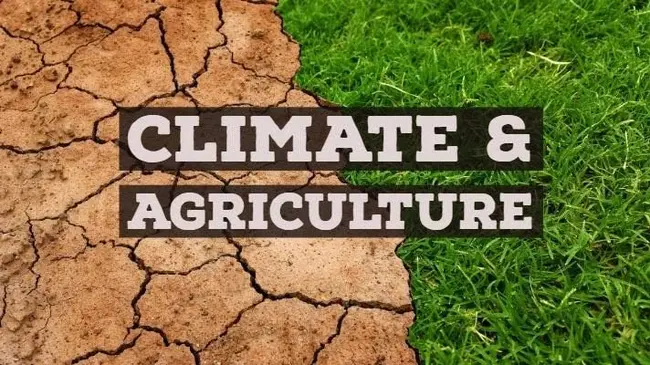image credit: Climate And Agriculture
- Jun 11, 2024 3:11 pm GMT
Climate change is causing big problems for farming, which is the foundation of our food system. The changing climate, with hotter temperatures, unpredictable weather, and less water, is making it harder to grow crops and raise animals, which could lead to food shortages for many people.
Changes in Seasons:
It’s like trying to farm without knowing what the weather will be like. Winters are less snowy, and summers are scorching, followed by sudden freezes. This messes up traditional farming methods. Droughts and heavy rains damage crops, leading to poor harvests and more risk of failure. These extreme conditions also help pests thrive, making things even harder for farmers.
Effects on Livestock:
The problems aren’t just in the fields. Raising animals is also getting tougher because they can’t graze as usual, and there’s less water for them. The heat also makes animals less productive and more likely to get sick. Climate change is also making soil worse through erosion and other problems. This means the land is less fertile and can’t store as much carbon, which makes climate change worse.
Not Enough Water:
Water is becoming scarce, which adds more challenges. Climate change is making it harder to find clean water, especially in places that are already vulnerable. Floods can also make water dirty, making it harder to use for farming.
Luckily, there are ways to help. Climate-smart farming uses technology to use water and fertilizers more efficiently. Planting crops that can handle different temperatures and creating new types of crops that can survive in harsh conditions are also important. Techniques like cover cropping and no-till farming can keep soil healthy and help it absorb carbon.
Knowing the Weather:
Having early warnings about the weather can help farmers prepare. Weather forecasts and insurance based on weather conditions can protect farmers from losing their crops to extreme weather. Teaching farmers about climate-resilient practices is also crucial.
Local Efforts and Global Impact:
Local knowledge and involving communities are key to finding sustainable solutions. Farmers sharing their experiences and using practices that work locally can make a big difference. Educators can help spread these practices across communities.
Adapting for a Better Food System:
To ensure food security for the future, we need to adapt agriculture to a changing climate. Embracing new ideas, working together between farmers, scientists, and policymakers, and using local knowledge are crucial. This will help secure food for the future, ensuring a healthy planet and enough food for everyone.
Magdaline Mwihaki
Get Published – Build a Following
The Energy Central Power Industry Network® is based on one core idea – power industry professionals helping each other and advancing the industry by sharing and learning from each other.
If you have an experience or insight to share or have learned something from a conference or seminar, your peers and colleagues on Energy Central want to hear about it. It’s also easy to share a link to an article you’ve liked or an industry resource that you think would be helpful.












